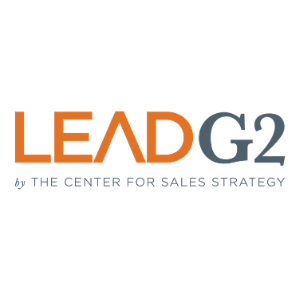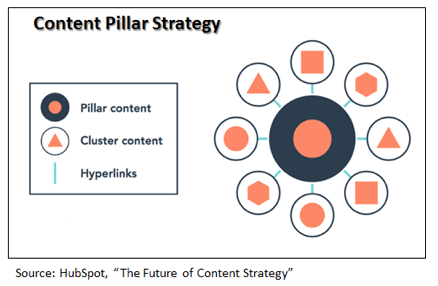What comes after the buy-in?
 Let’s start with an assumption that the partners in your firm believe that an inbound marketing strategy is a terrific investment to grow the firm’s top line while complementing their 1:1 marketing (referral, socializing, networking) activities. That investment means that partners have become (or are committed to being) inbound marketing literate and that the firm has made an investment in marketing technology and infrastructure like HubSpot to make all of the moving pieces work together.
Let’s start with an assumption that the partners in your firm believe that an inbound marketing strategy is a terrific investment to grow the firm’s top line while complementing their 1:1 marketing (referral, socializing, networking) activities. That investment means that partners have become (or are committed to being) inbound marketing literate and that the firm has made an investment in marketing technology and infrastructure like HubSpot to make all of the moving pieces work together.
So what do marketers need from partners to make an inbound marketing program work? It’s all about commitment and actions based upon a new and better way to market the firm and their personal brand. That means stepping up to the plate with a consistent body of content based on their thought leadership, participating in reviewing metrics and adjusting strategies and tactics based upon revealed data, and following up on leads produced in a timely manner, instead of letting them languish and become stale.
On the other hand, what should partners expect from the marketing department to justify their commitment and support their inbound marketing? I’ll go into some more detail below, but in a nutshell, it’s all about executions, promotion of offers and monitoring:
(1) Marketers Need to Help Their Partners Get Found
Inbound marketing is all about getting found by prospects searching for solutions to issues, pains or needs. Here’s 5 ways that marketers should support their partners to this end:
- Publish an accurate an up to date bio on the firm’s website
- Use internal links on the website to drive readers to the partner’s bio page
- Help your partner develop and establish a complete LinkedIn profile
- Create a blog publication schedule and publish blogs on the firm’s website, with ”author links” and an author blog tag
- Promote the partners blog and content using an integrated multi-channel strategy – enewsletter, email, LinkedIn and other social media as appropriate
(2) Marketers Need to Help Their Partners Generate Leads
Inbound marketing is all about lead generation using thought leadership developed by the partner and packaged by the marketer into various devices like whitepapers, eBooks, seminars, webinars, videos, podcasts, blog posts, slide shows and more. Here’s 5 ways that marketers should support their partners to this end:
- Look for thought leadership opportunities by talking to client, monitoring the trade press, and seeing what competitors are posting on their websites
- Secure the resources to help the partner produce and package the content –whether self-produced, done with in-house resources, or by using outsourced resources
- Use marketing technology and create Call to Action Buttons and landing pages for lead acquisition
- Aggressively promote the availability of the partner’s thought leadership on the website, and off site using enewsletter, email, LinkedIn and other social media as appropriate
(3) Marketers Need to Help Their Partners Nurture Leads Through the Sales Funnel
Not every lead produced is going to be sales ready, so it’s up to the marketing department to develop and execute a lead nurturing program for their partner’s lead gen efforts. This means:
- Installing automated marketing technology, and configuring that technology to deliver the right message to the right target at the right time
- Helping to develop, create and promote offers for leads that are at the top of the funnel (looking for information and education), middle of the funnel (actively looking for a solution) and bottom of the funnel (actively looking for a vendor).
- Writing and timing the delivery of email drips vis a vis strategies for moving a prospect though the sales funnel
(4) Marketers Need to Deliver, Review and Recommend Tactical Shifts Based on Analytics
In today’s digital marketing environment, everything can be measured. A key responsibility of marketers in an inbound marketing environment to show partners the effectiveness and ROI of the efforts that are being executed on their behalf. Discussion about the KPIs that will be used to measure effectiveness are warranted, as well as a frank discussion of realistic expectations.
It Takes Commitment from Both Partners and Marketers to Make Inbound Marketing a Success
Here’s a quote from Howard Shultz Chairman and CEO of Starbucks that’s a great way to end this post:
“When you're surrounded by people who share a passionate commitment around a common purpose, anything is possible.”
Inbound marketing is not passive marketing – it involves partners and marketers working together toward measureable goals of increased visibility, more leads, and more new customers.
.png)








Leave a Comment